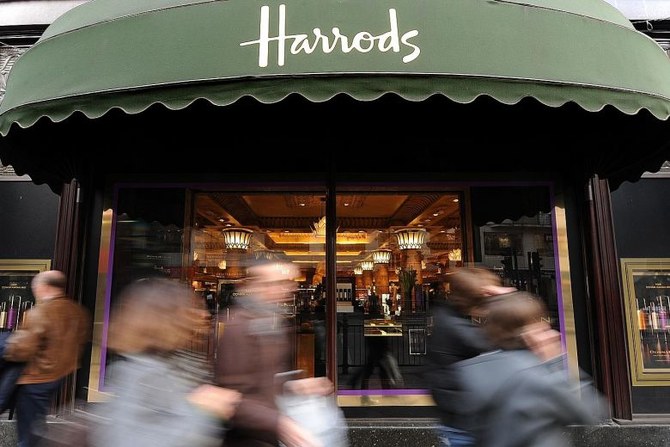LONDON: The UK’s flagship luxury department store Harrods will reopen Monday having closed due to the coronavirus pandemic.
But new UK quarantine rules mean Gulf Arabs, who are among the store’s most dedicated customers, are unlikely to return soon.
The Knightsbridge store, famed for its selection of high-end brands and fine cuisine, will reopen under strict social distancing rules following its first closure in 170 years.
Saudis and other Gulf Arabs have long flocked to Harrods and the surrounding Knightsbridge area for its glamour, food and high-end shopping.
But new government measures imposing 14 days' quarantine on most international arrivals could undercut the area's appeal to these sought-after guests and hamper its economic recovery, Michael Ward, managing director of Harrods, told The Sunday Times.
“London is the luxury capital of the world,” he said, “people won’t come.”
A raft of measures will be introduced to ensure shoppers can safely enjoy all that the store has to offer.
Technology will be used to monitor footfall and ensure social distancing can be maintained, while staff will be roaming the seven-floor building reminding customers to respect social distancing rules.
Shoppers will still be able to try on clothes, shoes and watches before they buy, but these will be put straight into quarantine if they aren’t purchased.
The beauty salon and wellness center, unable to ensure the safety of customers, will remain closed. The food hall will have a strictly regulated capacity — hungry visitors may be turned away at the entrance.
Ward believes the store will still be able to provide the unique shopping experience for which it is famous while respecting strict social distancing measures.
“This is all about shopping as an experience. We’ve been through difficult times, but we want customers to have a joyful happy experience and see the most beautiful products,” he said.
Ward is also confident about the store bouncing back.
“People get back to their old ways very quickly,” he added, “There’s lots of pent up demand.”

























